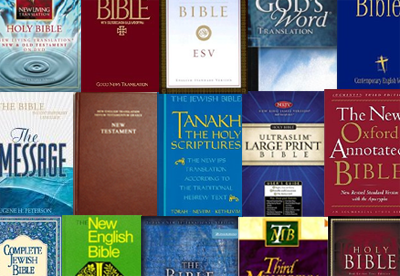I recently launched the One Verse Podcast, and hundreds of people have subscribed so far.
And while most of the feedback has been overwhelmingly positive, I have also received a bit of negative feedback from people who subscribed and didn’t like what they heard.
So here are three reasons you should NOT subscribe to my Podcast:
1. Don’t Listen to My Podcast if you are a pastor or professor and want to keep your job.
If you are a pastor, and you are listening to these podcasts, or if you lead a Bible study in your church, let me provide a brief warning. Do yourself a favor and don’t teach any of what I am teaching you to the people in your church. In most cases, if you teach these things about Genesis 1, it will not go well for you.
 I think churches are beginning to lighten up a bit on some of this stuff, and consider ideas that maybe they wouldn’t have considered ten years ago, but I have heard so many horror stories of pastors being fired and Bible study leaders getting booted out of the church simply because they taught some of the views I have been sharing in these podcasts.
I think churches are beginning to lighten up a bit on some of this stuff, and consider ideas that maybe they wouldn’t have considered ten years ago, but I have heard so many horror stories of pastors being fired and Bible study leaders getting booted out of the church simply because they taught some of the views I have been sharing in these podcasts.
In fact, when I first started learning about some of the things I am sharing on these podcasts about ten years ago, I was working for a non-profit Christian organization, and I made the mistake of writing a blog post about how I was studying and researching these things. Do you know what happened? I got fired from my job. There were seven things I was studying at the time, and one of them was the issue we have been discussing in this podcast, about whether or not Moses was writing a scientific treatise on how the earth came to be. My boss didn’t like that I was researching these things, and he fired me.
So be careful!
2. Don’t listen to my podcast if you get uncomfortable when your understanding of Scripture is challenged.
In my theological writing and Scriptural research, I have always sought (like Captain Kirk) to “Boldly go where no man has gone before.” But that doesn’t mean that what I write is science fiction! (Though some might think so! Ha!)
 No, what I mean is that I have always sought to investigate a matter from every possible angle. While lots of Christians only read books and listen to teachers with whom they agree, I always do my best to listen to Bible teachers and read Christian books with whom I know I will disagree.
No, what I mean is that I have always sought to investigate a matter from every possible angle. While lots of Christians only read books and listen to teachers with whom they agree, I always do my best to listen to Bible teachers and read Christian books with whom I know I will disagree.
I figure that if what I believe is true, then it can stand up to any and every challenge thrown at it. If, however, what I believe is not true, then the only way to learn the truth is to be taught by those who believe something different than what I believe.
What this means, however, is that what I write and what I teach on my Podcast, is often a strange mixture of ideas gleaned from Dispensational, Reformed, Catholic, Pentecostal, Orthodox, and Jewish sources. Believe it or not, there are even some ideas from Atheistic sources thrown in.
Does that last part shock you? I listen to what Atheists say because the critics of Christianity often speak truths we ourselves are blind to.
Here’s the point: If you don’t like your theology and your views of Scripture to be challenged, you probably don’t want to listen to my Podcast. It will be too upsetting for you.
I am not saying I am right in everything I teach. I am learning right along with you. All I am saying is that the people who will most enjoy the podcast are those who also know that they are not right in everything they believe. This is the third reason you might not want to listen to my podcast.
3. Don’t listen to my podcast if you are a Bible expert and there is nothing else you can learn about Scripture.
I am not a Bible expert. I am a fellow traveler with you on this road of following Jesus.
My blog and podcast are places where I share with you my life-long hobby of reading theology and studying Scripture.
But if you have all your theology figured out and you know what every verse in the Bible means, then you have no need to listen to my podcast and you won’t enjoy it. You will probably just end up thinking I’m some sort of heretic.
On the other hand, if you know that you have much to learn about Scripture and theology, then you are exactly the type of person who should listen to my podcast, because you are the type of person I want to learn from.
Why You Should Listen to My Podcast
 While my podcast is a place for me to teach what I have come to believe about various verses in the Bible, it is much more than that. More than anything, my podcast is a way for me to invite feedback from you, so that I might learn from you as you learn from me.
While my podcast is a place for me to teach what I have come to believe about various verses in the Bible, it is much more than that. More than anything, my podcast is a way for me to invite feedback from you, so that I might learn from you as you learn from me.
My podcast, just like this blog, is about inviting you into the conversation. I am not at all interested in telling you what to believe about Scripture and theology. I am very interested, however, in having a cordial conversation with you about Scripture and theology, and how to live it out in our lives so that you and I end up looking and acting more like Jesus.
That is what I hope my podcast accomplishes, and if that interests you, then I look forward to hearing from you about the content in my Podcast. See you there!






 Choose from Three Courses:
Choose from Three Courses:

 They firmly believe they are followers of Jesus and are still part of the Church, even though they no longer sit in a pew on Sunday morning.
They firmly believe they are followers of Jesus and are still part of the Church, even though they no longer sit in a pew on Sunday morning.
 They sit back, and they usually joke around a bit about how they want God to give them a million dollars and a mansion on the beach and let them live forever in perfect health.
They sit back, and they usually joke around a bit about how they want God to give them a million dollars and a mansion on the beach and let them live forever in perfect health. 
 If you have this sort of conversation with someone, and then you end it with, “So come to our church on Sunday! This is what our pastor teaches! His sermons are great!” you will probably never have a conversation with that person again. They will think that the only reason you said what you said was to get them into a pew at your church. They will see it as manipulative (and they would be right).
If you have this sort of conversation with someone, and then you end it with, “So come to our church on Sunday! This is what our pastor teaches! His sermons are great!” you will probably never have a conversation with that person again. They will think that the only reason you said what you said was to get them into a pew at your church. They will see it as manipulative (and they would be right).
 But I also knew that knowing Scripture, and knowing theology, and knowing about grace is not really the point of it all. The point of it all is to actually
But I also knew that knowing Scripture, and knowing theology, and knowing about grace is not really the point of it all. The point of it all is to actually 
 And trust me … if you follow Jesus, you will never get bored.
And trust me … if you follow Jesus, you will never get bored.

 I was glad that the podcast host pushed back a little bit by asking if the pastor saw any difference between “what the Bible says” and “our understanding of what the Bible says.” The pastor said he did see a difference, but then went on to show by the rest of his comments that he didn’t. He basically said that how he understood the Bible was what the Bible clearly teaches because he lets the Bible and the Bible alone inform his theology, and anybody who disagreed with him was just following their own human understanding of the text imposing their own theology on the text of the Bible.
I was glad that the podcast host pushed back a little bit by asking if the pastor saw any difference between “what the Bible says” and “our understanding of what the Bible says.” The pastor said he did see a difference, but then went on to show by the rest of his comments that he didn’t. He basically said that how he understood the Bible was what the Bible clearly teaches because he lets the Bible and the Bible alone inform his theology, and anybody who disagreed with him was just following their own human understanding of the text imposing their own theology on the text of the Bible.
 In fact, there is not even a consensus on how to decide which variant readings are the best. There are two main approaches to the Greek texts, which can be found in the NA/UBS Text and the Majority Text. While the vast majority of scholars today prefer the approach found in the NA/UBS Text, a large number of scholars prefer the approach of the Majority Text. I won’t get into the differences here, because it would bore you to tears. In case you are curious, however, I
In fact, there is not even a consensus on how to decide which variant readings are the best. There are two main approaches to the Greek texts, which can be found in the NA/UBS Text and the Majority Text. While the vast majority of scholars today prefer the approach found in the NA/UBS Text, a large number of scholars prefer the approach of the Majority Text. I won’t get into the differences here, because it would bore you to tears. In case you are curious, however, I 
 And on and on and on …
And on and on and on …
 Have you ever wondered why God doesn’t make Himself more obvious?
Have you ever wondered why God doesn’t make Himself more obvious? He and I were talking next to our wood pile (we heated our home with fire wood) and there was a two by four sitting right on top … it was about four feet long … perfect for knocking someone over the head. He pointed to it and said, “See that two by four, God? Come on! Hit me over the head with it! Right now! If you exist and if you love you me, knock me out!”
He and I were talking next to our wood pile (we heated our home with fire wood) and there was a two by four sitting right on top … it was about four feet long … perfect for knocking someone over the head. He pointed to it and said, “See that two by four, God? Come on! Hit me over the head with it! Right now! If you exist and if you love you me, knock me out!” God hides Himself because God loves and respects us so much.
God hides Himself because God loves and respects us so much. Because He loves us.
Because He loves us. Genesis 1:11-13. Then God said, “Let the earth bring forth grass, the herb that yields seed, and the fruit tree that yields fruit according to its kind, whose seed is in itself, on the earth”; and it was so. And the earth brought forth grass, the herb that yields seed according to its kind, and the tree that yields fruit, whose seed is in itself according to its kind. And God saw that it was good. So the evening and the morning were the third day.
Genesis 1:11-13. Then God said, “Let the earth bring forth grass, the herb that yields seed, and the fruit tree that yields fruit according to its kind, whose seed is in itself, on the earth”; and it was so. And the earth brought forth grass, the herb that yields seed according to its kind, and the tree that yields fruit, whose seed is in itself according to its kind. And God saw that it was good. So the evening and the morning were the third day. 
 Since I love to study Scripture and read theology, I believed and taught that every Christian should do the same.
Since I love to study Scripture and read theology, I believed and taught that every Christian should do the same.  So I do my best. I study hard. But I
So I do my best. I study hard. But I 
